
Overview
Continuing previous post: Agile Life, let’s dive deeper into a series of ITSM methodologies and products proposed by Atlassian, with a view to applying them in work and life to further enhance productivity and narrative skills.
Challenges
- Profile: Data Engineer + Operations Administrator
- Jobs
- Provisioning and troubleshooting data pipeline, visualization and monitoring
- Collaborate with other developers and administrators
- Pains
- Repeated or similar questions
- Long communication time to do situation analysis
- Hard to find thorough SOP or agile workflow
- Hard to prioritize ad-hoc tasks
- Gains
- Single source of truth
- Organized knowledge base, working documents
- Unified way to handle similar incidents
Objectives
- Build smart and modern IT Service Management and cultivate mindset with team
KRs
- 2021-08 Learn from all Atlassian ITSM topics and whitepapers
- 2021-08 Establish Knowledge-Centered Service for users
ITSM
IT service management – often referred to as ITSM – is simply how IT teams manage the end-to-end delivery of IT services to customers. This includes all the processes and activities to design, create, deliver, and support IT services. The core concept of ITSM is the belief that IT should be delivered as a service.
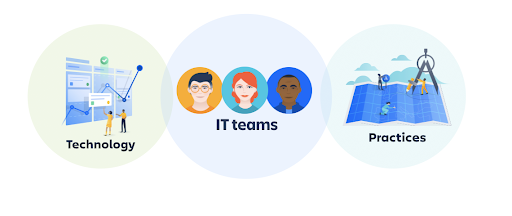
Core
- Team First
- team playbook.
- Rather than answering to rules imposed by a tiered reporting structure or rigid process, IT teams can make informed decisions about things like adopting SLAs and which software to implement. Because IT teams enable productivity and digital transformation, strong IT teams are critical to strong organizations.
- Then Practice
- Successful IT teams build their approach from frameworks like ITIL (the Information Technology Infrastructure Library), but are careful to think about how to adapt processes that will resonate with their customers.
- Finally Technology
- It empowers end-users and automates mundane work, so everyone gets more time to focus on what matters most to them.
ITSM vs ITIL vs DevOps
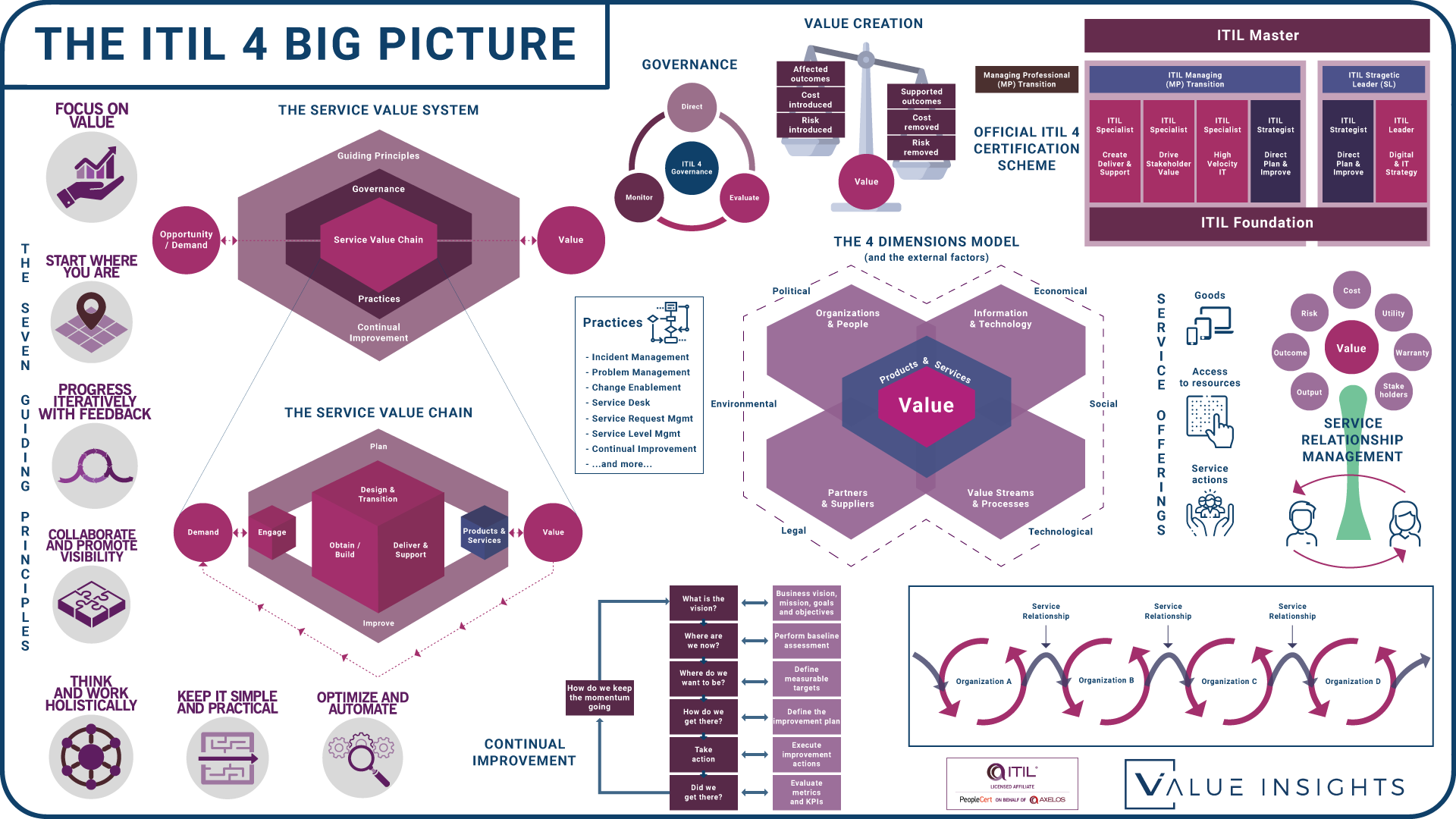
- Four dimensions model
- Organizations & people
- Information & technology
- Partners & suppliers
- Value streams & processes
- SVS:Service Value System
- Opportunity / Demand => Value
- Guiding Principles
- Governance
- SVC: Service Value Chain
- Practices
- Continual Improvement
- SVC: Service Value Chain
- Four dimensions model

DevOps promised benefits include
- Increased trust
- Faster software releases
- An ability to solve critical issues quickly
- Better management of unplanned work.
DevOps is much more than just automated development, and promotes the importance of collaboration and a blame-free culture.
The importance of ITSM (Common benefits)
- Aligning IT teams with business priorities tracked through success metrics.
- Improving request coordination for more efficient service.
- Promoting customer-centricity with self-service and better processes.
- Responding more quickly to major incidents, and preventing future ones.
ITSM Processes / Practices
- Service request management is a repeatable procedure for handling the wide variety of customer service requests.
- Knowledge management is the process of creating, sharing, using, and managing the knowledge and information of an organization.
- IT asset management (also known as ITAM) is the process of ensuring an organization’s assets are accounted for, deployed, maintained, upgraded, and disposed of when the time comes.
- Incident management is the process to respond to an unplanned event or service interruption and restore the service to its operational state.
- Problem management is the process of identifying and managing the causes of incidents on an IT service.
- Change management ensures standard procedures are used for efficient and prompt handling of all changes to IT infrastructure.
Service Request Management
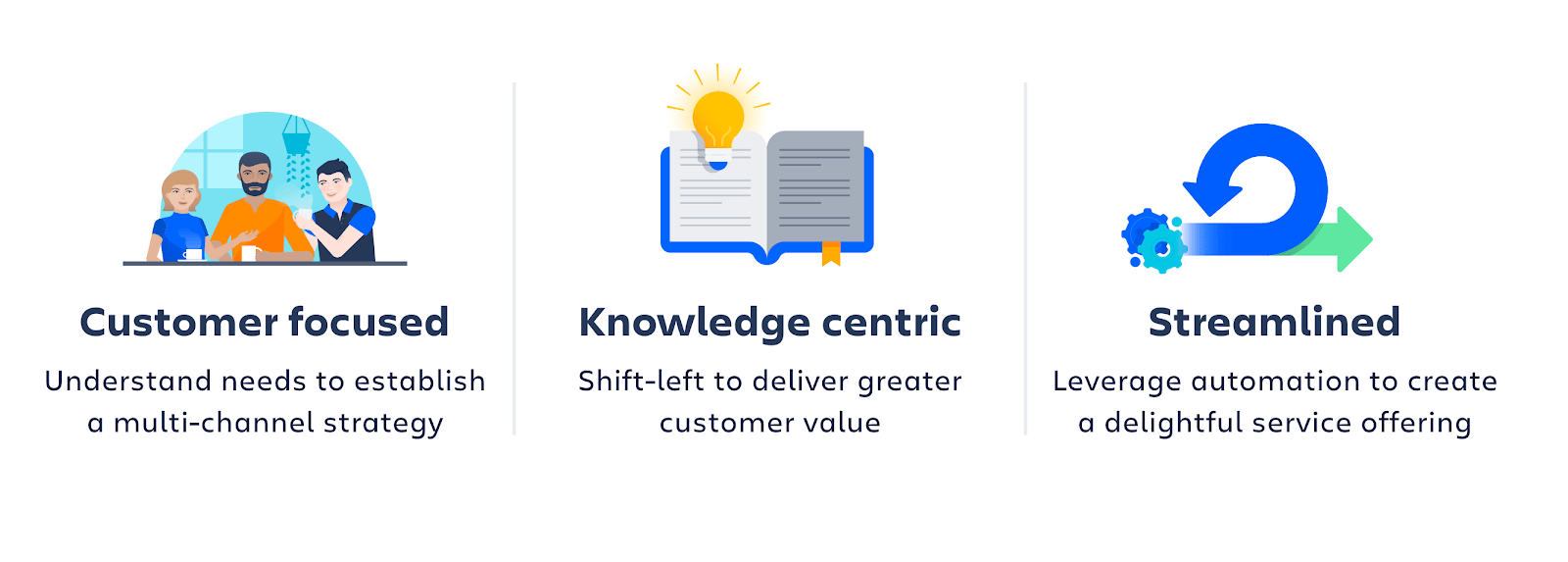
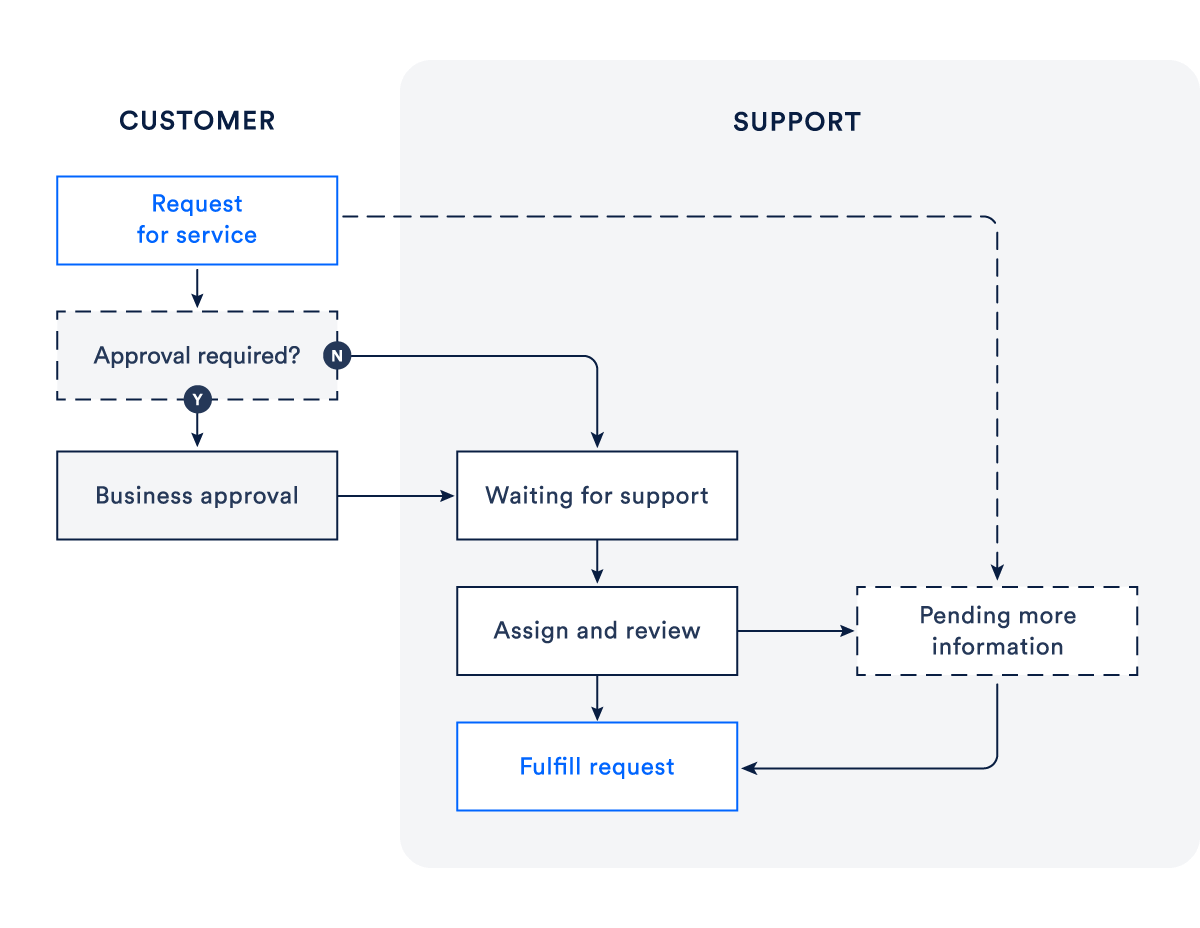
smart support workflow
Knowledge Management
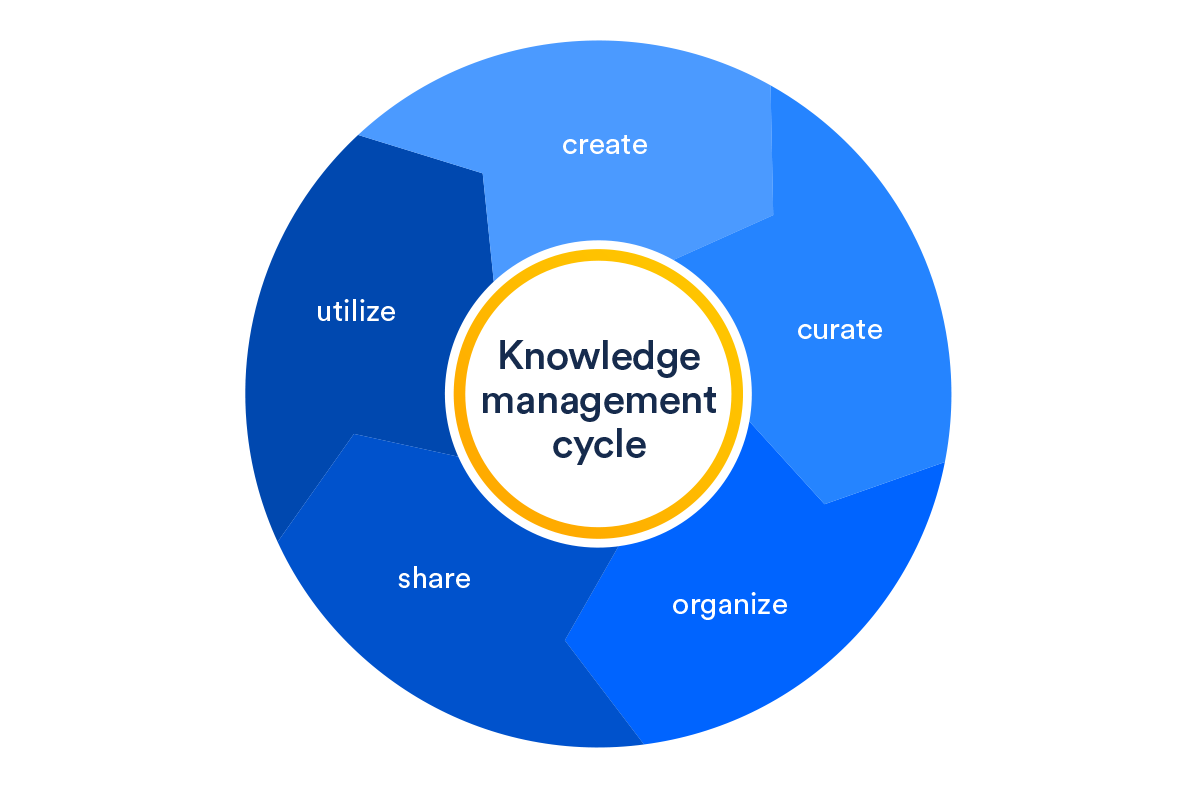
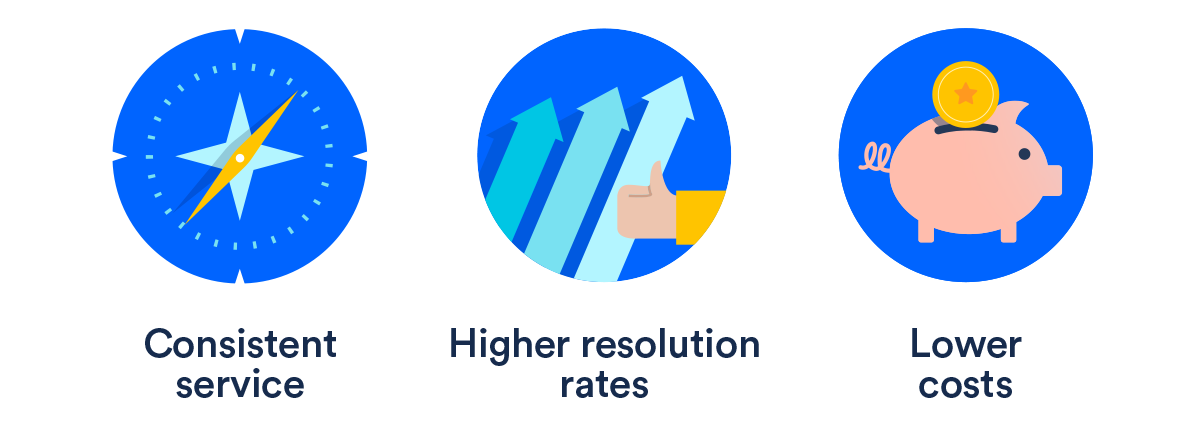
- Aggregate your team’s knowledge in a single repository or system.
- Increase transparency with open and shared information.
- Make work visible with a project poster.
- Focus on brief articles or answers.
- More consistent service.
- Higher resolution rates at first contact.
- Lower training costs.
KCS - Knowledge-Centered Service
- What is knowledge-centered service (KCS)?
- Benefits
- Numbers
- 30 – 50% increase in first-contact resolution
- 70% faster time-to-proficiency for new analysts
- 20 – 40% improvement in employee satisfaction
- 10% fewer reported issues/support requests
- 50 – 60% of KCS adopters also improved time to resolution
- Less problem-solving from scratch frees up time
- More consistent customer experiences mean happier stakeholders
- KCS creates continuous improvement
- Good documentation enables true self-service
- Numbers
- Challenges
- Teams often experience cultural challenges that make it hard to shift out of what expert David Kay calls “an obsession with the urgent and tactical.”
- IT managers get too busy fighting fires using current processes (ineffective as they may be) to focus on doing something more strategic.
- How does KCS work?
- Capture knowledge
- Structure knowledge
- Reuse knowledge
- Improve knowledge
- Use knowledge to see the big picture
- KCS v6
Tips
Incident Management
Problem Managment
Change Management
ITIL
Murmur
- 2021-08-07 knowing is one thing, doing is another. Recently I just realize deeply how important these precise definition is, as I’m working on advocating these “well-known” knowledge and really implements these concepts into my work and team collaboration.